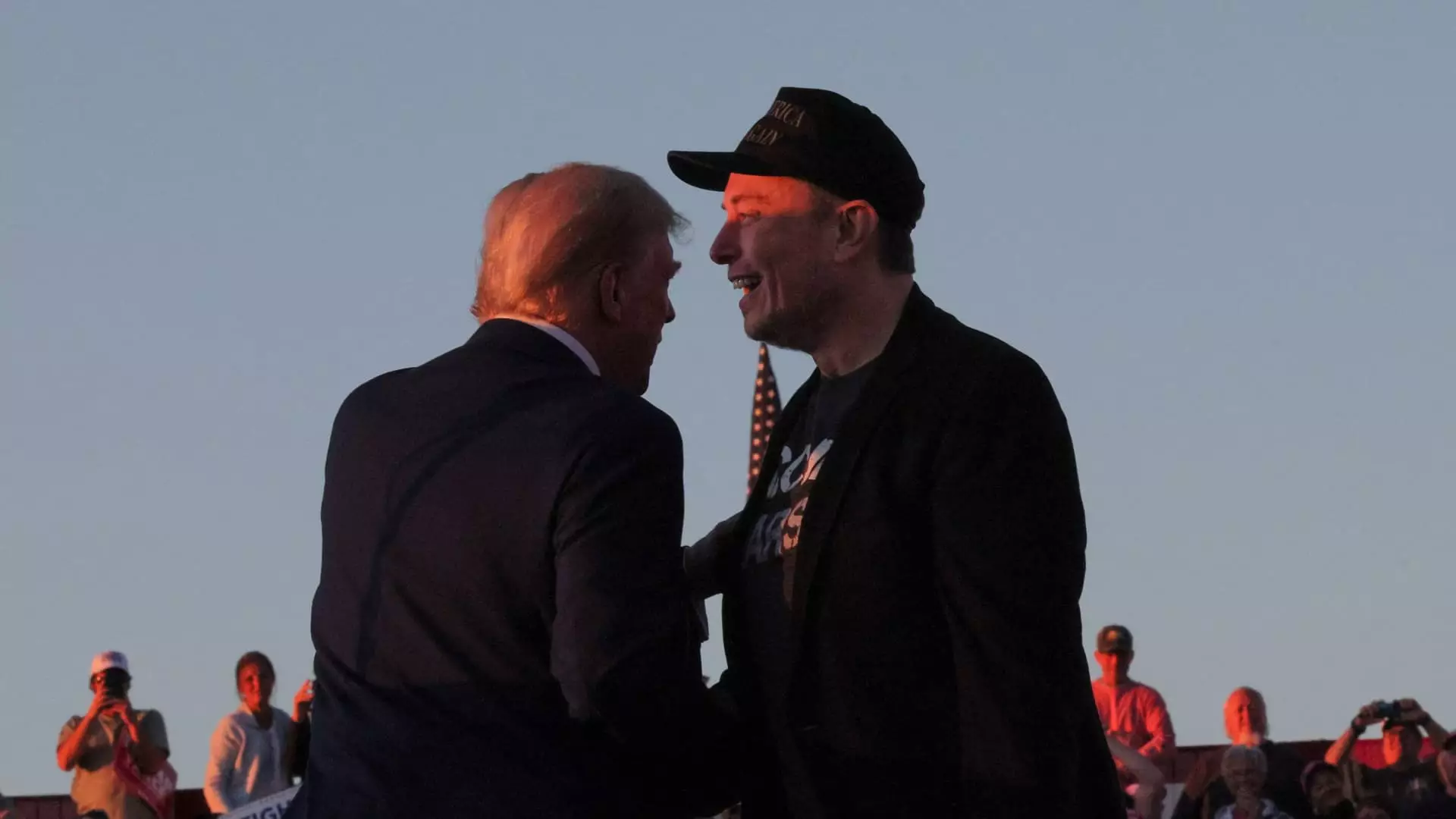In the lead-up to Tesla’s forthcoming quarterly earnings report, a troubling undercurrent has surfaced among investors—Elon Musk’s political involvement. As retail shareholders turn their attention to the implications of Musk’s public statements and political activities, concerns are being raised about how these actions might affect the company’s reputation, sales, and ultimately, shareholder value.
Elon Musk is the quintessential embodiment of a modern-day entrepreneur, balancing multiple high-profile positions as the CEO of Tesla and SpaceX, and owner of the social media platform X. His recent endorsing of political figures and involvement in political discussions has raised eyebrows, with investors questioning whether his outspoken nature aligns with the responsibilities expected from a corporate leader. An anonymous shareholder aptly illustrated this viewpoint, asserting that while Musk is entitled to his political beliefs, there exists a troubling dissonance between these beliefs and his duty to protect shareholders. This sentiment is echoed by many, highlighting a growing unease within the investor community.
Musk’s activities have not gone unnoticed. Many service industry stakeholders and analysts are now scrutinizing the potential long-term ramifications of his public persona. As the financial world awaits Tesla’s third-quarter results, the inquiry among investors has chiefly centered around Musk’s proactive promotion of former President Donald Trump and how such actions could influence Tesla’s growth and sales figures. Indeed, the correlation between Musk’s political commentary and delivery numbers remains a contentious issue. Some analysts predict that his outspoken nature has already cost Tesla a significant number of sales in recent months.
Despite a swell of questions regarding Musk’s political engagement, Tesla has refrained from engaging with these concerns openly. Investor worries about Musk’s actions translating into a detrimental impact on the brand’s integrity or shareholder-oriented strategies have been met with a conspicuous silence from the company’s management. This lack of response may fuel further investor worries and could lead to escalating calls for accountability, particularly as shares have dipped 14% this year, significantly outpacing the decline of the broader Nasdaq index.
Investor queries have ranged from whether Musk’s political activities detract from Tesla’s core mission to concerns about the integrity of the brand itself. The findings of brand consultancy Interbrand present a stark picture: Tesla’s brand value plummeted by 9% this past year, pushing it down the rankings and allowing established automotive brands such as Toyota, BMW, and Mercedes-Benz to surpass it. This dip in brand value raises fundamental questions about how Musk’s political involvement could be shaping consumer perceptions and purchasing decisions.
As Tesla attempts to navigate the rapidly changing automotive landscape, the ambiguity in its goals has arguably generated market confusion. While Tesla is often celebrated for pioneering electric vehicles, some critics believe that Musk’s diverse focus—from AI development companies to brain-computer interfaces—has diluted the brand’s clarity and consistency. The notion that a CEO’s political posture could overshadow the company’s technological innovations and long-term plans for autonomous vehicles is a growing concern.
Moreover, as industry competitors continue to launch successfully marketed products, including electric trucks that have garnered praise, Tesla faces mounting pressure to demonstrate significant advancements. The perception that the company is losing its edge in the EV market could be exacerbated by Musk’s ongoing political narrative, diverting attention from Tesla’s technological legacy toward a potentially polarizing discourse.
Looking forward, Tesla and its leadership must face a critical crossroads. On one hand, Musk’s individual brand—marked by audacity and innovation—continues to attract attention. However, investors are increasingly demanding that personal agendas not overshadow business imperatives. Addressing this dichotomy is essential not only to restore investor confidence but also to clarify Tesla’s future trajectory within a rapidly evolving market.
As Tesla’s earnings report approaches, all eyes will be on how the company’s financial performance correlates with Musk’s controversial political engagements and the perceptions they shape. Stakeholders genuinely hope that Musk will prioritize the long-term welfare of Tesla and its investors amid the whirlwind of political intrigue, solidifying its standing as a leading force in the automotive industry, free from the distractions of external politics. The outcome might define Tesla’s path in a landscape that is becoming ever more competitive and rife with volatility.


Leave a Reply